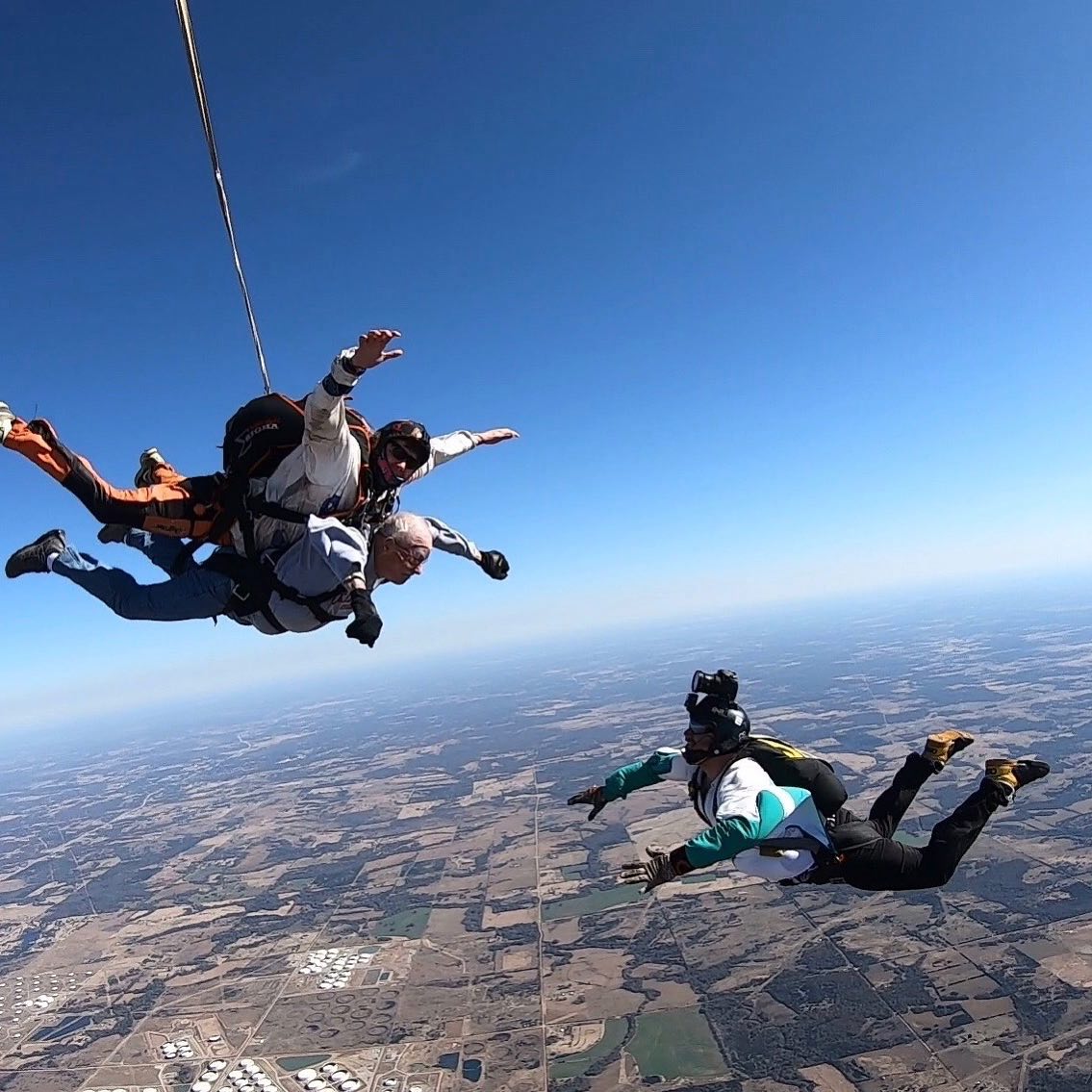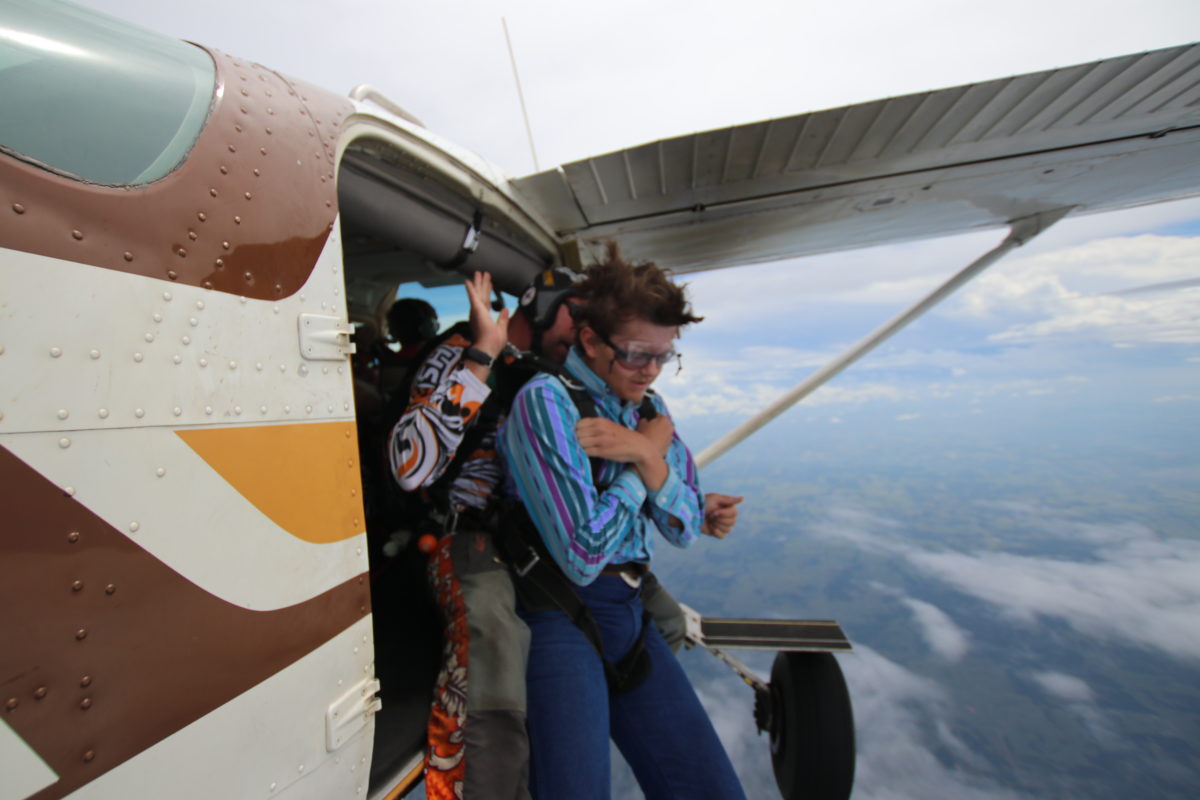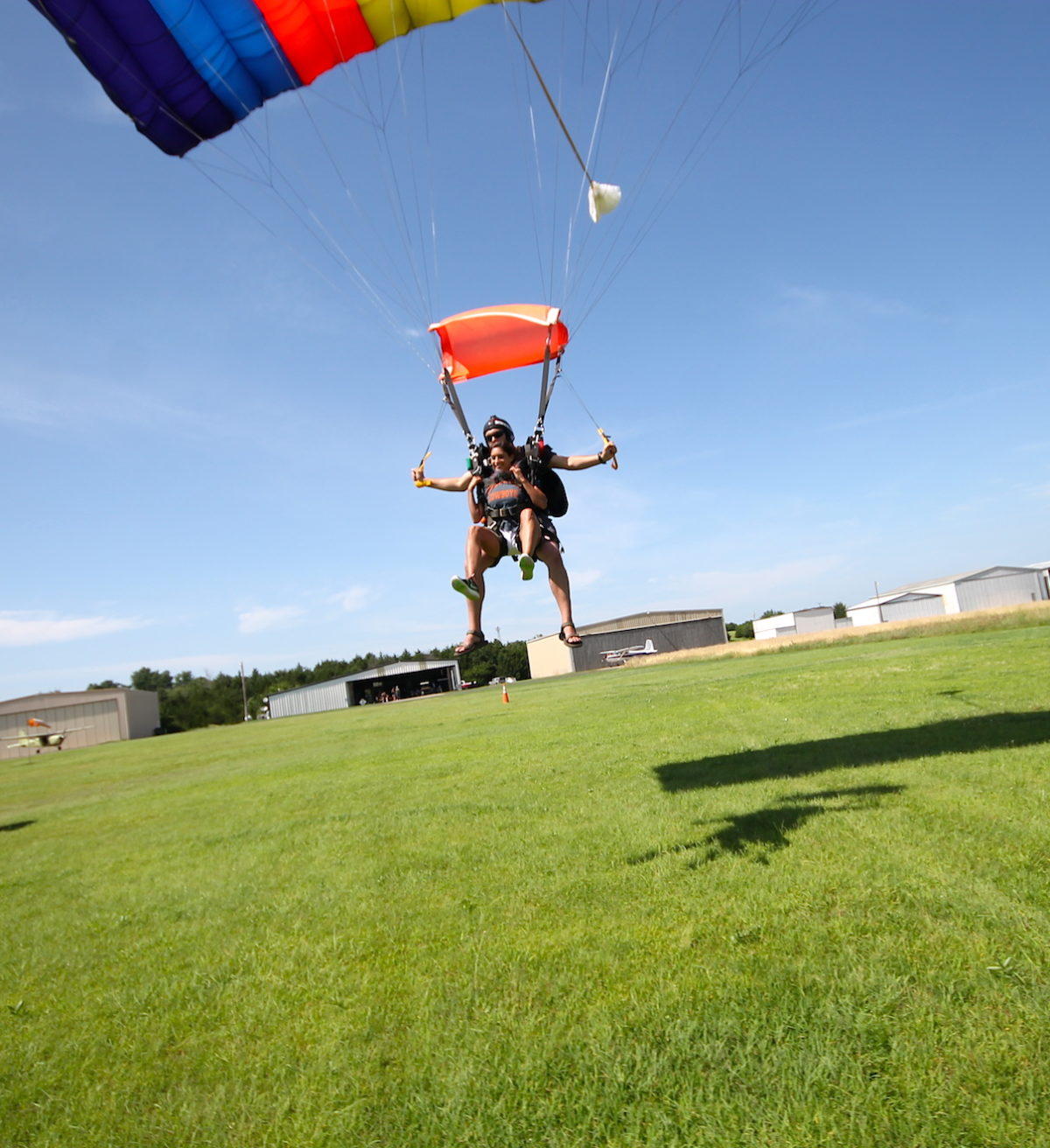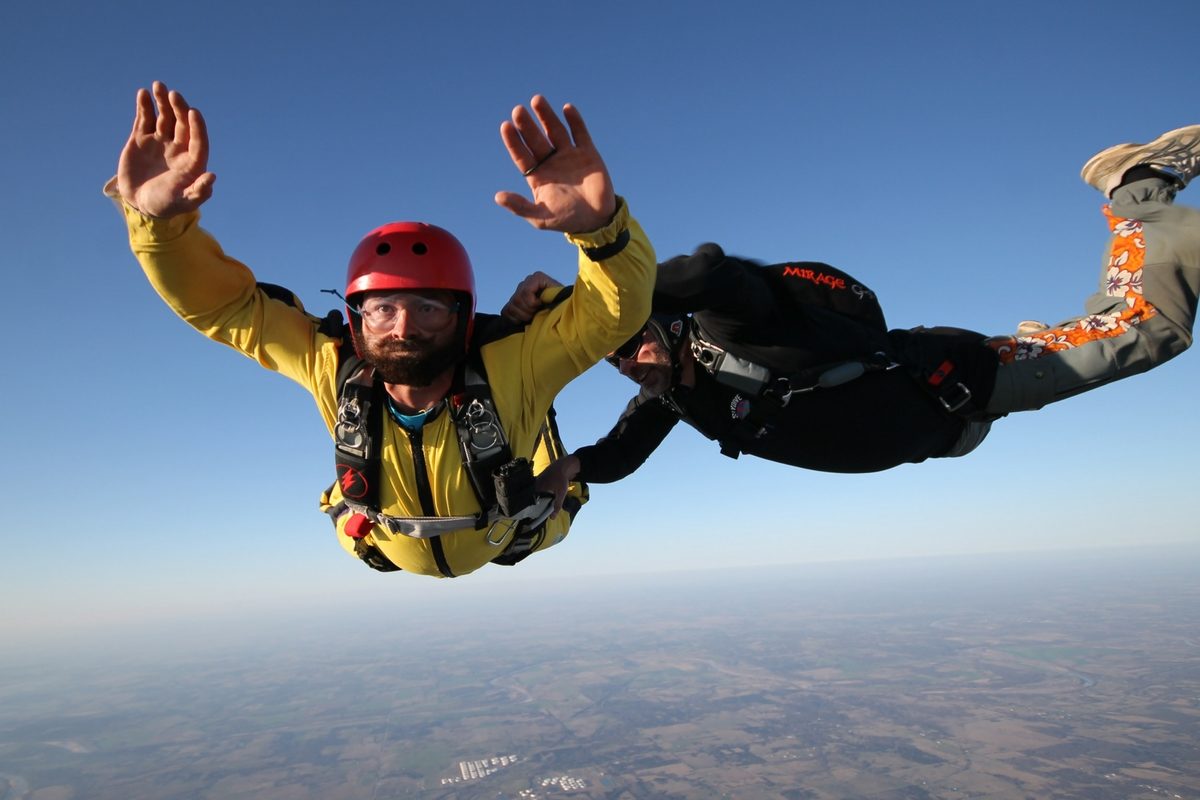Does Skydiving Hurt?
Friday, October 14, 2022
Does skydiving hurt?
Generally speaking, skydiving is a relatively painless experience. But, to be honest, there are certain elements in the activity of skydiving which can cause both physical and emotional discomfort. Sometimes, the unpleasantness experienced during a skydive is related to the participant’s fitness level and flexibility. Other times, unease arises from being ill-prepared for your jump.

While the majority of skydives are uneventful, it is important to note that skydiving is an extreme sport, and there is a risk (albeit small) that participating in the activity of skydiving can result in serious injury or death.
Below, we will cover the different portions of a skydive and further dissect the question of does skydiving hurt? by delving into a few body-part specific queries.
What Are the Different Parts of a Skydive?
Skydiving can be broken into a few key sections: the plane ride to altitude, the exit, the freefall, the canopy deployment/ride, and the parachute landing.
Plane Ride to Altitude
There can be no skydiving without the plane ride to altitude. Boarding the aircraft will require both the skydiving student and the instructor to crouch in order to climb through the door into the plane. After entering, you may need to move either on your knees or all fours to your spot on the aircraft.
At Oklahoma Skydiving, we fly both a zippy Turbine 206 and a trusty Cessna 182, so depending on the aircraft being used that day, you will be cozied up with three to five other individuals. This may require you to sit with your knees bent in order to leave enough room for your plane mates.
Skydiving Exit

After being securely attached to your instructor, exiting from the plane will require you to shuffle in a crouched or kneeling position to set up in the side door of the aircraft. There are different skydiving exit techniques, and your instructor will cover which one you will utilize prior to boarding the aircraft.
Freefall
We refer to the space in time after you exit the aircraft and achieve a swift terminal velocity of 120mph as freefall. A stable freefall requires an individual to be flexible enough to maintain the skydiving arch: a position where the hips and pelvis are pressed down as the lowest point of the body and the shoulders and head are held high. If you’re having trouble picturing it, try imagining a banana – this shape resembles a good skydiving arch quite perfectly.
Canopy Deployment / Ride
At the appropriate altitude, your tandem skydiving instructor will deploy the parachute. Because parachutes are designed to have a staged deployment process, typically, the parachute opening does not hurt. The sensation is analogous to quickly pressing on the breaks and abruptly stopping in your car.
Generally, the parachute ride after deployment is uneventful. Although, you can request for your instructor to make the ride more exciting with turns and spirals under canopy. If you are a larger or more full-figured person, it is also possible that during the parachute ride you may notice some discomfort from the skydiving harness.
Parachute Landing
Though the tandem skydiving instructor will be in control when it comes time to land the parachute, you will have an important role to play. Listen closely to the instructions they provide. At the appropriate time, they will ask you to lift your legs in order to better slide in the landing and protect your lower extremities from injury.
Does skydiving hurt your ears?
Skydiving aircraft do not pressurize on the way to altitude, and so, you do experience the change in “real time.” On the way down during freefall, this occurs much more rapidly. If you are not suffering from any sort of sinus congestion, the sensation you may experience is like your ears are slightly stopped up or stuffy.
However, if you are experiencing sinus congestion or pressure on the ground, it is extremely unwise to skydive. In severe cases, skydiving with sinus congestion or a cold can result in a burst eardrum — and that definitely hurts.
Does skydiving hurt your back?
As we mentioned in the sections above regarding boarding the aircraft and freefall, skydiving does require some flexibility. If you lack this flexibility, it is possible that skydiving could hurt your back. In most cases, though, individuals with a moderate level of flexibility will not experience back pain on a typical skydive.
However, if you have a history of back problems or have had back surgery, please contact your doctor prior to scheduling a skydive.
Does skydiving hurt your stomach?
At the very beginning of this piece, we mentioned unease or discomfort that could arise from being ill prepared for your jump. Turns out, an aching belly falls neatly into that category.
To avoid feeling queasy, remember to eat before your skydive. Plan on having a healthy breakfast and bring along some light snacks to tide you over until it is time for you to jump.
Additionally concerning stomach distress, many people are concerned skydiving will produce the tummy troubling, gut lurching drop that they’ve experienced on roller coasters and carnival rides. Thankfully, skydiving doesn’t generate this feeling!
A stark change in the body’s speed is what causes the odd sensation many experience on roller coasters. However, in skydiving, the aircraft you jump from is flying anywhere from 90 to 100 mph. After exit, you’ll gain speed over the next three to five seconds until you reach terminal velocity. Because the delta between the two speeds is negligible, you do not experience a dropping sensation like that of a roller coaster.

—
At Oklahoma Skydiving Center, we want you to be comfortable and, of course, pain free on your skydive! So, if you have any further questions that we didn’t cover here, please don’t hesitate to call!
And if you’re ready to make the leap, schedule your first tandem skydive today!
Copyright © 2024, Oklahoma Skydiving Center, All Rights Reserved.
DropZone Web Design & Marketing by Beyond Marketing, LLC





